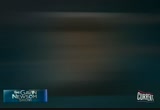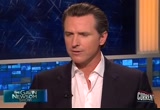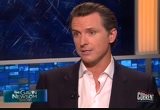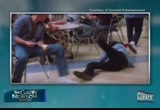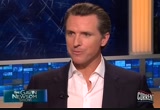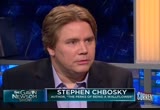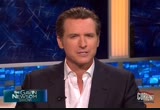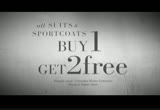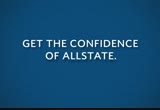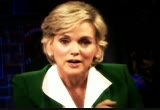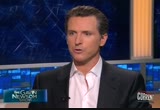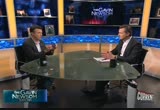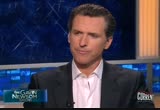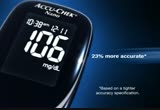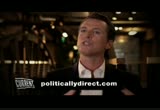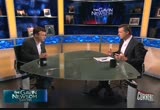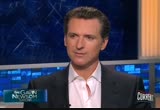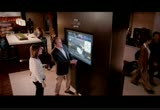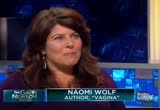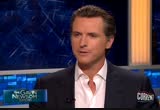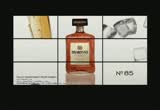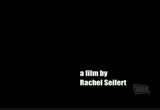tv The Gavin Newsom Show Current September 28, 2012 11:00pm-12:00am PDT
11:00 pm
executive tkr*eplt director of director of future med daniel craft here is. and one woman who is not afraid for say the word vagina, nigh noami wolf has a new book named after that particular body part and joining us to talk about it. first author, director, steven, steven, it's great to have you on the show. >> thank you yes. >> gavin: this is unbelievable. your book, you wrote in 1999, and i just come to find out that last month, for the nurse time some 13 years later it hits the new york times best setter list, it only took 1 million copies to be sold in 14 countries around the world. >> lightly more than that, but yes. you are close. you are absolutely close. >> gavin: what do you think made this boo being so important book so important and did you know when you were writing it that it would have this kind of impact? >> you can't plan for something like that. i wrote this book for very personal reasons, at the time i was 26, going through a rough time.
11:01 pm
break up. and charlie the main character the purity of that character helped me a great deal. it was like a saturday morning i'll never forget. i was in new york, i felt him tapping me on the shoulder saying it's time. i had been thinking about the story for years but it was time and i found the voice. in terms of the impact that it's had, i can never -- i could never predict listen if i could predict why -- if i knew why it was so successful i would coupe duplicate it over and over again. from the letters that i have gotten from the kids is that the different is they know it's authentic. the focus group didn't create this. this is very personal to me. and this has been for me as the author it, the beautiful magic trick about this book, you write it or you publish it in part not to fila loan. you probably have this a little bit in politics, you want people to know that people understand them. what's great sever time you get a letter back or someone stops you on the street the magic trick is that the person that doesn't fila loan is you. every time. it's great. >> gavin: and the letters, i have listened to you and watched
11:02 pm
you actually read some of the letters, they are extraordinary. >> thank you. >> gavin: i mean, a young girl i think 12 years old that write a letter feeling complete despair ready to take her own life, and picks up and one day reads this book and not only decides not to but it profoundly changes of course of her life, that's an extraordinary gift to impact even one life, i can imagine the thousands of letters, i mean, this has to be beyond all expect takeses. what a gift. your gift has been. >> yeah, thank you. i will say this, when i got that letter and several since and met a young man in person once, it changed me. it made me feel very responsibilities i believe for the movie that's why i knew i had to it myself and do it right and i am really proud of this. because i knew that, you know, as much as we want kids to read that some just -- you know,
11:03 pm
their best friend could say you have to read this book and they won't do it. i thought the message was important, let's do the movie right and get it out to more people. >> gavin: now, this was a book, interestingly that not everyone embraced. there are some difficult subject matters for some. and difficult for all of us, coming of age story, of course, but you bring on the issues of homosexuality, drug use suicide. difficult issues. and abortion. some folks actually went so far as not only to protest the book being in their school, or even their library but to actually have it banned in long island and massachusetts. >> yeah. several places. >> gavin: so that, mine, how do you respond to that? some people see it as a badge of honor and a great way to promote something. but some people see it differently. >> i don't. if you write a book and parts of it are silences and all censorship is is silence. >> and look, i am from pittsburgh, i was raised
11:04 pm
catholic. i would never -- if a school forced a student to read this i wouldn't feel right about that. the parents should always have the option. but i don't agree with that parent then telling all of their neighbors what they have to read or not receipt. >> gavin: right. so here you went through the process of writing a book and takes 13 years to get the new york times best seller list. >> i am officially the tortoise, that's why the green cover. >> gavin: well done. now. a movie. and you have some fabulous actors and actresses. you directed it yourself. you didn't outsource this. you did the screenplay. you directed. i imagine you cast all of the characters. why do you feel that you needed to do that? and why didn't you want to just hand this over to others? >> well, i owe it had to the fans to do it right and do it authentically. and also i was a move guy. i have done other -- i read the screenplay for rent and jericho and other things. and it just felt like the perfect -- the perfect melding
11:05 pm
of all of my interests including music and other things. >> gavin: you made the decisions on all of that. the music list itself all of the set locations. >> yeah. you have help from every -- i could take credit for everything. no, we had help. wonderful music supervisor, alexander, he was she was great. she helped a lot. but at the end of the day i knew the story better than anyone, and you know when you have the chance to film a scene between the ant and the little boy on the street where i grew up, literally in front of my street. you know, and film in one crane shot in a lawn that i used to mow. it gives an authenticity that i could never outsource let's put it that way. >> gavin: the producers of this are the ones that did juneau, john malkovich. he said something interesting he said do the tough take, don't do a romantic take, what demean by that? >> we were at dinner and john said he's very sweet.
11:06 pm
he says, your script has real heart if you have real heart you don't need sentiment. you are a guy from pittsburgh, direct the move like that. get the tough take. what it means is you know, if the movie, in the book, deal with a lot of tough issues, but it's not an issue yous movie. you know, i wanted to do a movie about young people that respected the hard things they went through but at the same time celebrated, you know, the first kisses and first crushes and the perfect drives and the perfect songs. the tough take meant always play against sentiment. respect the experience. and don't try to portray it through rose-colored glasses basically. >> gavin: why did it take you all of these years to do a movie? it was a phenomenal success early on. why so many years? >> you know, i have asked myself that question meantimes. and i needed the distance to be able to do a proper adaptation. that's as a writer. but i think god might have been looking out for me a little bit because there was a moment i have on set when i looked at
11:07 pm
this cast. and i knew because it's a movie about young people, if i had done it five years earlier emma watson ezra miller, may whitman they are all too young if i waited another few years they would all be too old. this group is one of the best young casts i have ever seen assembled. i can't believe they are in my movie. and ultimately i think that's why. >> gavin: tough them in mind over the years? when you are --always have the idea that this would be a move any. >> always. always. before. even before. before. >> gavin: so when -- you 80 screen plays so i imagine writing a book is pretty self-evident then. >> yeah, yeah, yeah. i always knew it would be a movie and that i would do it. yeah. this is -- you know, it's very strange, because this is september 28th. and next month will mark the 21st anniversary, i am sitting in my little apartment at usc film school and i wrote the line, i guess that's one of the perks of being a wall flower, and 21 years later here we are.
11:08 pm
>> gavin: and what was the inspiration for typing those words then? what was -- what was the conscious moment where -- >> you know, it wasn't -- i just wanted to write a book and i wanted to write a true store by a young person, i didn't quite have the chops then, i was a kid. i wasn't mature enough. but it just poured out and when i had that i knew i had my film. >> gavin: so are you charlie? is this you? >> to a large extent, yes. not 100 percent. there is some adventure and it's semiauto biographical. >> gavin: similar experience, friends ships relationshipses. >> a lot of similar relationships. a lot of areas were inspired liar people i knew and loved and my experiences growing up in pittsburgh. >> gavin: and obviously it's always difficult to follow i'm phenomenon of sorts. and such big success i imagine a lot of pressure to do a follow-up even from your fans and you go to a fan page it's
11:09 pm
unbelievable. i delve in and i can never get out. it's extraordinary. so a sequel to the book the move i it 1e678 the experience of making a movie. everyone here has watched it and thinks it is phenomenal. >> thanks. >> gavin: i can so not be strong enough in my encouragement for people to watch it. i imagine it will be a big success. the pressure to follow-up or do you want to do something different? >> i am writing my second novel now. after doing a lot of journeyman screenplay work. it was great to get back to do what i do. it woke up my love for writing novels again, i am writing my second novel and i will direct that one as well. will there ever be a sequel to perks specifically? there might be. i have a couple of things that i want to say. but i don't want it to be -- there are a lot of series of books, let's do sophomore year. there is no sophomore yearbook. charlie is more of my insider reflection about like the full
11:10 pm
span of life. so the next time that we meet these guys it might be much burk further down the road. >> gavin: great to have you on the show. good luck with this movie. though i think you will have an ease time being successful in this. congratulations. >> thank you i appreciate it. >> gavin: steven is likely to come out with another movie. many movies perhaps years before we see much change in traditional doctors offices with their clipboard and handwritten filings. it begs the question, why is it so difficult to modernize medicine? finds out what's taking so long with leading medical inning a voigt irrelevant, can el craft rightdaniel craftright off our break. (vo) the only network with real-time reaction straight from the campaigns and from viewers like you. >>now that's politically direct.
11:12 pm
nah, he's probably got... [ dennis' voice ] allstate. they can bundle all your policies together. lot of paperwork. actually... [ dennis' voice ] an allstate agent can help do the switching and paperwork for you. well, it probably costs a lot. [ dennis' voice ] allstate can save you up to 30% more when you bundle. well, his dog's stupid. [ dennis' voice ] poodles are one of the world's smartest breeds. ♪ ♪ bundle and save with an allstate agent. are you in good hands?
11:13 pm
now to my point. (vo) jennifer granholm ... >>for every discouraged voter, there are ten angry ones taking action. trickle down does not work. in romney's world, cars get the elevator and the workers get the shaft. that is a whole bunch of bunk. the powerful may steal an election, but they can't steal democracy. ♪ ♪ >> gavin: long waits at the doctors office or endless hours at the emergency room might soon be over, well, at least for most of us. that's because there is an app for that. all kind of medical innovation that his allow e-patients to be
11:14 pm
diagnosed, for example, from home. dr. daniel craft is at the cutting edge of this field. he's affiliated with stanford and chairs the future med program at sing layer at this university. daniel, it's great to have you on this show. you are leading the way in terms of the future of medicine. and we have talked a lot in the show to experts in robotic surgeries and other things synthetic biology and issues of artificial intelligence and how they are evolve to go advance our medical discoveries. but the practical application seems technology in almost every other realm has dramatically advanced, but i still go to the doctor and i still have a doctor fill out -- or i have to fill out a form before i go in and the doctor comes with a clipboard. where are we in present terms with medicine? >> well, we are still kind of practicing medicine the way it has been the last hundred years siloed by departments and body parts andologies and number two pencils and forms and starting to enter a new era where a lot of the fast-moving technologies that you touched on, sen at the
11:15 pm
time i can biology robotics, big date i are converting giving us a chance to change. take photos, share news and purchase things, have all dramatically historied and it's about to emerge in this respite diss rupp tiff age of new health care, a lot of challenges from the regulatory and reimbursement side and old barriers, exciting new potential to start shifting fast-moving technologies and health care. >> gavin: why haven't we scaled in you go to other technologies around the world and you have talked about it this. where electronic medical records are not being debated. they are further along, they are through the implementation. where are we? what percentage of medical records are electronic in little united states? >> still only about 30% in most doctors offices and part of the challenge is my friend dr. dean, we don't practice evidence-based medicine, we practice reimbursement based medicine for those doctors that didn't grow up on ipads it's easier to scribble a note down and see
11:16 pm
your information. it's starting to shift par sh*eu partially through obama incentive they are paying to shift to electronic. enabling to do it online for free on the web and that shift starting to happen. and that creates this new opportunity to have the power of not just medical information and data, to make it useful to the clinician and patient to give new visibility. electronic medical record should be electronic medical system and that's why in of these incentives have been in place to move the shift. once the incentive is there it's easier if doctors to do it the old fashioned way. >> gavin: once you have the actual data, health history it's more than just a way of having a virtual file cabinet. it can be used in what ways to make your life better? >> to date it's still much an electronic file. but where it's moving towards is sort of a smart system or dashboard, a smart in some cases enhanced by artificial intelligence or smart data
11:17 pm
capture. for example, if you are you are my patient and i haven't seen you in a while i could number through the old paper short but how do you pill up what's most relevant to you, your age genetics and other things happening in your life, it can reminds me, time for this vaccine and you have been measuring your blood pressure at home now maybe on a new smart phone enabled blood pressure cuff and see the trends and maybe even be blagojevich tphra*gedflacked earlier.i might get a notice come see gavin he has an issue you that's off track and one of the changing incentives, physicians are paid for cervi serve service fee for service the future is outcome based. if i i have a thousand patience i get a bonus if 90% of them have good blood sugar. now with these feedback systems they'll start to be measured the systems will get smarter and you may not need your annual physical or may need three visits depending on what your
11:18 pm
issues are bay miking the data actionable we can do that. part of that through the electronic medical. >> gavin: you talk about spending three times a year with your doctor. for the vast majority of people we don't need to go to a doctor's office we can use this technology to diagnose virtually, we can be in rural africa and be diagnosed in boston massachusetts, is that true? >> well, that's the era now of sort of tell medicine, only 20% of doctor visits require laying on of hands, a lot of times you spends a lot of of time in the office waiting. >> gavin: filling out forms. >> where things are moving to lower costs and improve care, is using some smart connected tension knowledges, i mentioned blood pressure earlier, one in three americans have high blood pressure and half are controlled. normally if i was starting you on blood pressure it would take weeks or months or years to gets you tuned up and you are
11:19 pm
normally scribbling that by hand if at ute. now you can go to best buy and buy a blood pressure cuff that talks to your smart phone and the nurse or doctor gets a message saying it's too high or low and we can optimize your medicine smartly. and now with smart phones, they are not just portals of information, we can now connecting support devices my iphone has a special case it's about a 5-dollar case made by eye company called alive core that has censors on the back and i can get my ekg in real time. we'll see how nervous i am, and that can be stored on the phone but sent to the cloud directly. >> gavin: what is that i can approximating up? >> 2-lead ekg. that's my basic ekg and i was a heart patient with funny rhythms or on medicine, i could use this to check that related to my medicine triage nurse in an even r or paramedic, you can use it right way. i was on a flight a month ago and a patients had a cardiac issue in the front of the plain and i could pull this out and
11:20 pm
check his ekg and see what was going on. that could be helpful for intervention. this is a small example of something you normally have to go to the clinic or hospital for. better karat lower costs. >> gavin: blood sugar levels you can do already on these phones? >> the f did. da just improved a smart connected for the iphone. and now again if you are a die bet he should, which we have many, you can manage your sugars, you can see a pattern and trends. there are studies to show if you connect your blood sugar numbers to your doctor they can dramatically improve your outcome. that's a small example of adding connected apps, doctors information and gaming is an information, so if you get points to checking your sugar and taking your insulin on time that helps move the needle. we spent about 80% of our health care that are on the chronic 21st of folks who end up back in the hospital, sometimes smartly shifting technology and items and gaming points can help move the needle. >> gavin: it seems what you are talking about is the convergence
11:21 pm
of different technologies and disdiss minutes including games and sort of aggregating them in a world as you began with that's siloed. where even you go to medical conferences, i imagine it's just on, you know, cardiology, whatever it is it's on that collision minute anddiscipline what you are doing through the singular university and future work is bringing these disciplines together. >> exactly. i was recently back at mass general hospital where i did my residency, and my sort of -- it hadn't changed much in 10, 15 years, same departments, same floors, same a larges and now we are in this integrated merger of words where we can define diseases molecularly things in at autopsy out immune disease is closer to cancer the bridges are being integrated and you are right, i go to check i am trained in hematology and oncology toying a home dolling conference and never talk to a cardiologist, what will he wei like to do is bring people together from different fields and mix it up and look at where the puck is going. what's the iphone seven going to be able to do. or the next generation element
11:22 pm
of artificial intelligence, if we can predict where things are going in a couple of years how can we built smarter system with the eye towards the future. i mentioned i.a. a couple of times, artificial intelligence, i like to call it i.a. ill 10 generals augmentation, less threatening to us physicians, right now explosion of data. papers guidelines, body measurements, i don't want to get a tweet every time you have a hiccup or a funny heart rhythm. what i want to do is get that information in smart ways, pars through it, and then being applied to latest data just like watson from ibm. beat the best champions in jeopardy. that technology is being applied to health care to make me a smarter clinician, we have 40 million uncovered americans today we will have a doctor shortage even with obama care being implemented how can with he let the nurse traditioner being much smarter and augment tools and bridge some of these closed silos i think there is a huge opportunities there and we need that if we are going to address the huge health care
11:23 pm
challenge. >> gavin: give me another example of artificial intelligence that is augmented or out mate the. for example, if i had a mole on my hands and i photograph that, a dermatology doesn't necessarily see it, it could go through some computational analysis to determine whether or not that's malignant or whether or not there is an issue you. >> right now if you had a funny mole if i was your primary care doctor i sends you for a referral. that might be a month from now. today you can download apps. takes a picture sends it to the cloud. it as al ga rhythms and compares it to other moments and gives you a risk profile. is it safe or a possible mel a melanoma and then there is a butt town finds the dermatologist and make the appointment alignment and that could get you seen much her quickly. and a lot of fields are going to be disrupted. radiology and dermatology, sort of pattern recognition base if i was a dermatologist today i
11:24 pm
would be worried soon there will be e-dermatologists and kaiser is doing this already sending pictures of the lesion to his re motorcycle dermatologist who his can see 100 patients an hour, and refer things to the right level. >> gavin: i have heard you talk and write about this there is an app for that, you gave a specific example of application that his you can do just that, instead of getting a precipitation, you can get an app precipitation, not the ones we are used to. is that the idea? >> in some cases, last things we do as physicians is i gotta get the patient out of the office and/or write a script tame this for your anxiety, did depression, some of those are very valid now in this connected the days we can use an apf if it's blood pressure i give you an app to track your fresh if you are get feedback loops and help you understand the disease and what the pills look look or if you have anxiety i give you an app
11:25 pm
to take deep breaths or gaming device that his look at your brain waves and optimist medications which could be useful for anxiety data. feedback, dash boards and incentivizing the system to en available that can make a huge difference. >> gavin: we have at that to take a quick break, but when we return daniel shares his thoughts on some of of the most innovative and fun any medical gadgets available to consumers today.
11:27 pm
>>there's not a problem that exists in america today that hasn't been solved by somebody somewhere. >>(narrator) share your views with gavin at politicallydirect.com, a direct line to the gavin newsom show. >>focus on the folks that are making a difference, that are not just dreamers, but doers. >>(narrator) join the conversation. >> gavin: we are back with dr. daniel kraft. executive director of future med at sing layer at this university. qualcomm put up $10 million, we had peter here recently the x prize for what they call try
11:28 pm
quarter, star track is that an impose immaterial dream or is that the ultimate from your perspective, at least for the moment manifestation of these con very gents technologies. >> it's already here think the medical try quarter i was on the team that helped design that. help people converge, people might not otherwise plateauing. a.i., medical devices apps thousand do you we take the technology and put tethers to. at home you have a scale and thermometer and maybe a blood pressure cuff. at least 30% of visits to an even r. are pretty mitch unnecessary, at least right way. they are not you urgent. we can create an integrated tool and some exist already in iphones put them in smart connected ways and in this prize for the x prize is incentivizing teams to really reach farther than we think we can be, be all daze herb but achievable so you can have a consumer based device at home a young parent can
11:29 pm
enable you to diagnose a ear infection without going to the doctor. one of the big things that happens in medicine is that we have patients diagnosed at stage three or four, heart attack has happened, cancer is diagnosed usually there is evidence of that earlier. if we can capture data whether it's from wrist censors or mattress thing that percent your honor vitals we can pick that up. it's very doable and already on the shelf. >> gavin: you talked about mirror that his can diagnosis diapers that can diagnose. >> right. >> gavin: i imagine toothbrushes that can diagnose. >> uh-huh. >> gavin: is that realistic? >> we are in the air of censors everywhere, they are getting cheap. if you cheated and opened the fridge at 3:00 in the morning your car has about two minute plus censors your mirror with cameras can pick up your heart rate. data, doubling al tal degree coming off of us all of time.
11:30 pm
when did you check in our for four square at mcdonald's or the jim. i like to use the analogy of on star systems for the cars, there are 200 censors you don't care about the temperature in piston number three or the oil pressure you care when the chickening inning light goes on and you don't need to be a mechanic to figure it out at least to know when to go it. it will be that in health care, mull tip the data streams integrated smartly and learn what things mean and end up with sort of guide ways and maps to go oh, your chickening inning light is on you have evidence of something to get checked earlier. >> gavin: there are a lot of concerns about cost curves and you have talked in the past a lot of folks about genome i can sequences which was over a billion dollars 10 years ago and now prices in the thousand ranges hundreds of dollar range in the next few year, we are see cost circumstances goes in the curves in the right direction, but seems to me things are getting more expensive. you have all that is tools and technology getting bigger and bigger reem burr little for
11:31 pm
insurance prices and they are passing those prices to me. there has been curve about obama care not doing enough to address cost curves, will this increase the costs of health care? or will swaoe the reduction. by having the joe name i can sequences . >> we are still learning to lead to better preindividuals, if we can risk stratusfy you earlier. we can do preventive steps that are personalized to you. for example, one in three european type americans don't benefit from aspirin, we give it to them anyway. we pick other and tune their medications more slightly. the payer, particularly medicare, the biggest one is saying we are not funding more expensive technologies, we are goal funding things that give you better outcomes at lower or the same cost. there are pressure is innovators to come up with new things and they new technologies and smarter ways which actually
11:32 pm
lower costs part that have is by doing it earlier smarter in the clinic from the mobile apps to wearable devices and using genetic information in smart ways, genetics is the beginning of the world of personalized medicine. why should i give you the same statin dose of everybody else if i can tune that for your gentleman net i cans, your weight, we need tools like artificial intelligence to help the doctor pick all of that from all of the streams of information, i can't do that in my head my more. >> gavin: speaking of head there is a part when a doctor looks at your heart there is a benefit of physical contact. direct engagement with a human being. that relieves some of the stress, not just physical. it's mental. are you concerned that as we move towards these diagnostic tools that using technology that we lose that human element? >> i think it's a critical element and stressed at stanford that you need to look at the patient not your ipad or the lent i can medical record and that hand holding piece is
11:33 pm
hugely therapeutic. you know about the placebo effect. there is the clinical patient-doctor relationship that is hugely impactful. these tools enable better care, not fill out forms that you can spends more of that short visit connected really discussing the key issues and leverage smart information that's being collected overtime so that you really are to the point medically but can also then help the patient know what to do for prevention or therapy. i agree there is a challenge there just like some folks on facebook have 2,000 friends but they are more lonely, we need better connected health care and more em powered patience, there is the movement of the e patient. patients are much more on top of their data. more empowered, they can see dare data. own their gentleman neat i cans, track their quantity if quantification steps and change the perception and the doctor-patient relationship. >> gavin: with social media you bring up facebook, the benefits sort of crowd sourcing, you have multiple points of reference. is that another big part of the
11:34 pm
rise of i think your optimism around technology and the merger with medical solutions? >> take an example. it's only been five years ago that i think google maps came out and that's changed. i haven't used a paper map in years i drove in san francisco and say there is a giants game i better take a different route and i could crowd source basically the google maps and see where people are driving and what the traffic is like. there is an analogy that will have radar for health. i have been a pilot for years sevened as a flight surge you uninnal california air national guard, there is lessons in that. if you are flying from here to north, what path for that day with that weather. other analogies that that realm are check lists that is helping improve the outcomes from the operating room or flight simulators. but the idea of having a map being able to measure where i am going, almost instead of just that check visit in the clinic where you get your blood pressure and vitals measured if
11:35 pm
you were flying from here to new york you don't just want to turn on the instruments twice in the flight you need them constantly. feedback loopings, instrumentation and the radar map collected from the other airplanes and patients around you like me, mine, can help get us there hopefully less expensively and healthy you are. >> gavin: great to have you on the show. fascinating conversation. >> thanks so much. >> gavin: thank you. do you remember that michigan politician to got barred from local government just forú mentioning the word vagina on the floor. the latest book is called vagina and she joins us next to talk about it.
11:38 pm
11:39 pm
with vagina a new biography. great to have you on the show. this book, it's amazing the reviews out there. i don't say that to critique the book per se, but candidly to critique some of the reviews you have people completely in, you know, on every side of the book. pro and con. up in arms. you have -- you have delivered a lot of passion out there. haven't you? >> well, i mean, i wrote a book that is full of very surprising information about women and their arousal and sexual response. and i know that some of the information is explosive. and you know, also it's an issue you that people have strong feelings about. but i am not concerned because i have noticed that the books i write people get most upset about are the ones that most become part. [speaking at the same time] >> gavin: in in ways it's a onesful thing it's something people come with all of their subjectivity at this and all of their inning taint insecurities
11:40 pm
as well and you can read that in a lot of the reviews people sorts of over compensating, some under competent being. the topic to your point is a difficult one, we had lisa brown censored on the michigan floor for using the word vagina. >> it's not a difficult topic if you are just looking at the new information that i am reporting on. i mean it's 400 pages of science, new discoveries of -- that should be changing the way we think about women and arousal and helping us understand that men's and women's sexual responses are not the same. just conventional wisdom that we are talk in from 40 years ago there is this amazing new neuroscience that shows there is a brain gentleman va gina vagina connection that people may be upset about not my leaders they are thrilled to learn more about themselves. the data explains why 30% of women report low sexual desire
11:41 pm
and another 30% some of the same well, some different, say that they don't reach orgasm when they want to. even in a hyper sexual icedized society. this is t*s not working for not working for women but this explains why. >> gavin: you are working around the mind vagina connection about, how is that controversial? it connects -- >> it's so funny, i wrote a book called misconceptions about the birthing industry which documented to understand of data on the brain uterus connection in childbirth that women are stressed they can't labor brain breast connection, lactation it's old news, no one was upset about it. but there is no data on the brain have volunteer gina connection when women have orgasms or even think about rewarding section dopamine, which is about motivation, initiative energy, it boosts open yates ecstasy we all know
11:42 pm
that and connection, intimacies, this is a potent cocktail, obviously, so i am making a very obvious case if you understand these positive mood states for well that are connected with women knowing about their desire and pleasure and getting it, in in whether they are in a relationship or notice, gay straight, by seeks bisexual, liz bien, this explains why female sexualism has been targeted, it's a strength for women if they know about their bodies and responses. >> gavin: do you think part it have is you? >> thanks,. >> gavin: that it's not -- it's a compliment of sorts. you have had a prolific career in a very short period of time. two decades, this is your eighth book. and is it the fact that you are saying these things that drive people to their strong point of view or is that being said at all? >> i try never to speculate about people's motivation, publisher's weekly says it's the best science book of the fall.
11:43 pm
top 10 for time magazine, other people are distraught. i think it's about how freaky people find the question is looking at female desire on its own terms which is exactly what i am doing. >> gavin: that was a percentage journey fourth the inter operation of this book came from your own exploration of yourself our join ex-salt your own enjoyment and pleasure. >> i wouldn't make too much of that. there is about five pages of the book where i was very honest with my readers about what led me to look at the science, it was a spinal injury, i was born withwith spina bifida and i realized i was having symptom of losing sexual sensation and mind states positive mind states after lovemaking that i was used to. >> gavin: you were enjoying pleasure but you didn't feel a sense of connection, happiness bliss, what? >> it's hard to describe. connection energy, sense of things being connected to each other. but the pleasure was great.
11:44 pm
so i understood that there was some brain vagina agains, when i had surgery in my spinal issue was corrected. i didn't just get physical pleasure back again sensation but i also got these mind states back and so i knew firsthand, i had an eyewitness experience that there was a brain vagina connection, i didn't understand it. it startled me, but then when i began to interview doctors who referred me to scientists and i that you there was a great deal of document takes in that which sensory input goes from the vagina to the spine to the brain resulting in this cocktail of, you know, neurotransmitters and hormones that i described that explains so much to me. and let's look at the dark side of that too because so many women have been abused. sexually abused or raped, about a third of women. and there is now a vast body of data that shows that rape stays in the brain rape stays in the body. that you know, women have symptoms like changed response
11:45 pm
to erotic videos and exercise years after a quote, unquote, nonviolent rape. so that's important finding too it means that there is no such thing as a nonviolent rape and those findings should help us treat rape survivors more effectively and help us lock way rapists for longer. >> gavin: why do you feel it was necessary to come out with this book? you know, i wrote the beauty 23 years ago and i have always been interested in why women are asked to feel bad about their bodies and bad about their sexuality and why it's mocked and taarabt. it'sit's always pussed me. i knew i would write about the vagina since it's such a taboo subject the kind of writing i do i am interested in why things are taboo. i thought i would right write a more cultural historical exploration and it's in there but when i found out about this incredible new discoveries in neuroscience i felt the need to bring that to
11:46 pm
readers. >> gavin: so you went back culturally and looked at the history from shine a, to india he liz both both vinnie history and vagina america internet, et cetera. anything that stood out in terms of looking at that history or the narrative or has it just been 5,000 years of does knowledge and depressing -- what's your takeaway? >> what's really amazing if you look at the history of the vagina i want to applaud you you are doing a good job of saying that in public it's really a hard word to say i hear giggles and you know, blushing in many other contexts, but well done. so what is quite amazing is how the narrative about the evilness and sort of negative quality of the vagina got invented and in about the 40 century after the birth of christ by a bunch of
11:47 pm
church forthers and only in the west. also our whole their at this tiff about a good vagina and bad have vine, a respectable women who don't have sexual desires and should-y should slutty women who did. that was in the rise of gene dolling, if you look at other place says like china where they were talking about the vagina as the golden lotus, jade gate. the blossom. beautiful poetic terms a completely different idea. >> gavin: if someone picks up this book what are you hoping to communicate? is there an sell shall element of this book that you wanted to communicate. runs of pages lots of research, remarkable 5,000 year history. and all of this new neuroscience, all of this new awakening and understanding what is it that you hope people walk away with? >> well, you know, i think sexuality is so personally hope they walk away with whatever is meaning to feel them. but probably for me the takeaway
11:48 pm
isal the vagina is much more than a sex soar began and i than aor gone and readershave understood more than they understood and have a basic grasp of their anatomy and male readers i am deleted that they are saying i know better how to make this woman in my life happy. so those are all positives. >> gavin: this would be a terrible way to end right there without the begging question, the follow up. what is it that you want to communicate kate to men? how do we make women happier? >> the big finding which is so incredible is that the female sexual response is very tied to the autonomic nervous system, more so than male sexual response, meaning that you have to be nice to a woman and respect her if you want her to want to have sex with you, it's not in here, it's a minds body connection. the women needs to be relaxed and kept free of bad stress in order for these goods things to happen and that can't happen if
11:49 pm
fukudome a woman is worried or angry or i asked to you pick up your sox and you are just dropping them in to the hamper. housework is foreplay, if that's what is stressing her out. doing the things that doesn't suppress her out. creating an environment in which she feels respected and cared for that's erotic for women. >> gavin: and safe. good way to end. thank you. >> thank you. >> gavin: when we come back, my thoughts on today's guests and why freedom of expression and freedom of speech are essential to who we are. [ dennis' voice ] poodles are one of the world's smartest breeds. are you in good hands?
11:52 pm
>> gavin: as we dive head first into the finale of an election year it's important to pay attention to freedom of expression. obama and romney may spend their time arguing over economic policy and there is no doubt that they have important distinctions, but it's our ability to openly yes particular them that sets us apart from so
11:53 pm
much of the world. each amounts book the perks of being a wall flower deals with issues that would have been banned in other country says truck, home so sexuality suicide and sex, these are the very issues young adult deal with this real book and book like these can be a sounding board for many who have no one to talk to. fast forward to the 20 testify and the i can united states of expression are still challenged as we witnessed with the sandra fluke-rush limbau debacle. and being banned for saying vagina. words still challenge what is acceptable and what is not. noami wolf is at the forefront of the conversation. her book vagina is certainly controversial but adds to the evolution of feminism and open conversation. as long as we move forward and not backwards which labarbera it comeswhen it comes to freedom of expression, here in san francisco in our studio we are in a pretty safe place.
11:54 pm
it's not always the case. in past weeks with seen it on the news, the protests, some blaming it on an amateur video host odd youtube, there are real consequences when expression is combined with technology or use today distort the truth rather than illuminating it. speech can be as dangerous as it can be illuminating. whether you agree or disagree with the opinions of the guestses on the show i hope you join in the conversation and participate in a critical part of the counsels tunes that constitution that makes it all possible the hope you have i great weekend and thanks for watching the show. unrivaled analysis and commentary. >> you're going to hear that used as a major talking point. (vo) the only network with real-time reaction straight from the campaigns and from viewers like you. >>now that's politically direct.
11:55 pm
238 Views
IN COLLECTIONS
CURRENT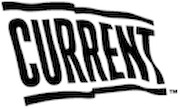 Television Archive
Television Archive  Television Archive News Search Service
Television Archive News Search Service 
Uploaded by TV Archive on

 Live Music Archive
Live Music Archive Librivox Free Audio
Librivox Free Audio Metropolitan Museum
Metropolitan Museum Cleveland Museum of Art
Cleveland Museum of Art Internet Arcade
Internet Arcade Console Living Room
Console Living Room Books to Borrow
Books to Borrow Open Library
Open Library TV News
TV News Understanding 9/11
Understanding 9/11